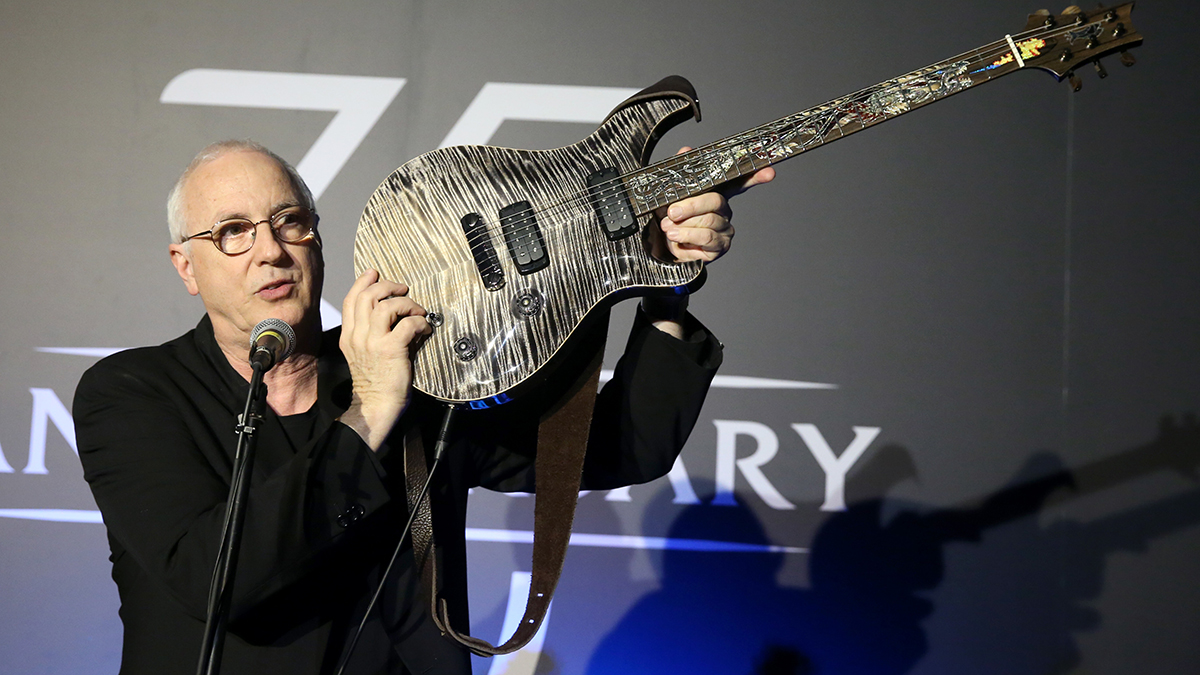
Paul Reed Smith – the man behind PRS Guitars – is not only one of the greatest living guitar makers, but he has also etched his name into history with a boatload of electric guitar and acoustic guitar innovations.
It's safe to say that the brand's patented tremolo system (developed after Carlos Santana wanted a guitar with a vibrato that also stays in tune), the compensated nut (which Smith invented in 1981), the introduction of the first piezo-equipped guitar, and, of course, various inventions in the pickup space has changed the game for the guitar space as a whole.
Smith's secret to his ever-burgeoning empire? “I'm not chasing Fender [and] Gibson. I'm chasing the history of guitars,” he says matter-of-factly, perfectly encapsulating his ethos.
“We don't think of it as innovation, we think of it as better guitar making. The problem with innovation is [that] it's like a catch-all phrase. But I wasn't thinking of trying to innovate. I was trying to think of solving problems,” he tells Reverb.
“Our innovations would have been this double-cut body shape – it's not a Fender shape, it's not a Gibson shape – splitting the difference between [the] old, beautiful, Fender neck shapes and old Gibson neck shapes and some of these Martin neck shapes, and having our own neck shape that would be an innovation. They're not copies – they're inspired-bys.”
Another key highlight from his career is PRS Guitars' prominence in the session space. “We had a room full of Nashville session players, and they said, ‘Paul, if we don't use your guitars on the tracks, we get fired,’” he recounts.
“And I went, ‘What are you talking about?’ They said, ‘Well, if we don't use your guitar for the track when the vocal is done and they tune the vocal, [and] the guitar is not in tune with the vocal, they have to replace the guitar tracks. And your guitars are staying in tune with tuned vocals, and we're having to use them because they're in better tune than what's happening.’
He continues, “It was intentional on our part to put the frets in the right place and put the nut in the right place and the bridge in the right place. But I didn't think I'd get that piece of feedback.”
As for what we can expect from PRS moving forward, well, Smith's answer is simple: “I don't want to change anything [but] I'm tinkering with everything, not because I want to tinker, but because there's something that isn't talking to the artist.
“Look, if you got a boat full of guitars, the rock star's gonna go for the guitar that does the job the best for him. And if they didn't go for our guitar, in my world, we've done something wrong.”
Last year, Smith shared what may be considered a (piping) hot take in the guitar world – that he doesn’t think where a guitar is made matters.







